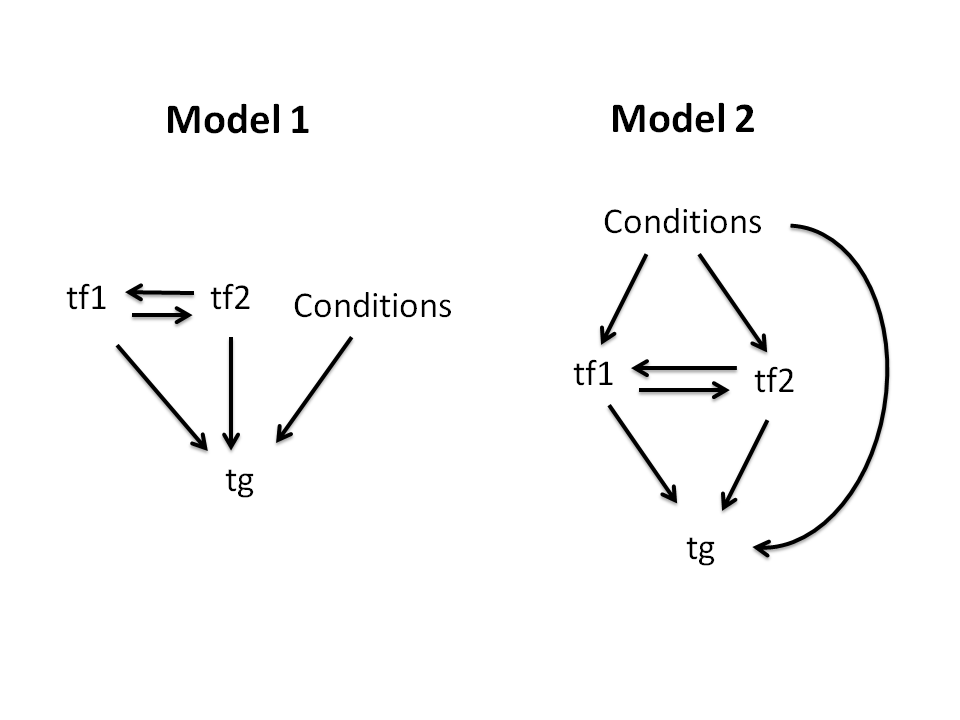I have 2 genes (tf1 and tf2), which are affecting a third gene (tg). By affecting a gene I mean the changes in the value of tf1 and tf2 changes the value of tg. what we measure in the whole experiment is this value. We want to see if the values of tf1 and tf2 are dependent (which means they are regulating each other) and if (tf1,tg) and (tf2,tg) are dependent. The response of the tf1 and tf1 and the tg differs in different conditions. So my 3 factors are tf1, tf2, and conditions.
- First I want to make sure that the design of my 3way-anova is correct. One dimension is the conditions.If we see the second and third factors (tf1 and tf2) as a matrix, I have designed it like this.
|tg |tf1 |
|tf2 |func(tf1,tf2)|
so in the first column, there is no tf1, and in the secong column we always see its effect. In the first row there is no tf2, but in the second row we see its effect. I thought that it would be good idea to fill the cell in the first row, first column with the tg. and the last cell has an effect of both of tf1 and tf2 (I combined the values of tf1 and tf1 with a function like average).
I appreciate if you tell me what you think about this design.
- If a:tf1, b:tf2, and c:condition, which of the SSs shows if there is a dependency between tf1 and tf2? Is it SSab?
The reason that I am asking is that I don't see much of a difference in the histogram of the SSab for samples in which there is an interaction between a and b with the samples that there is no interaction between a and b.
- Also, what is the interpretation of SSabc for my particular problem?

